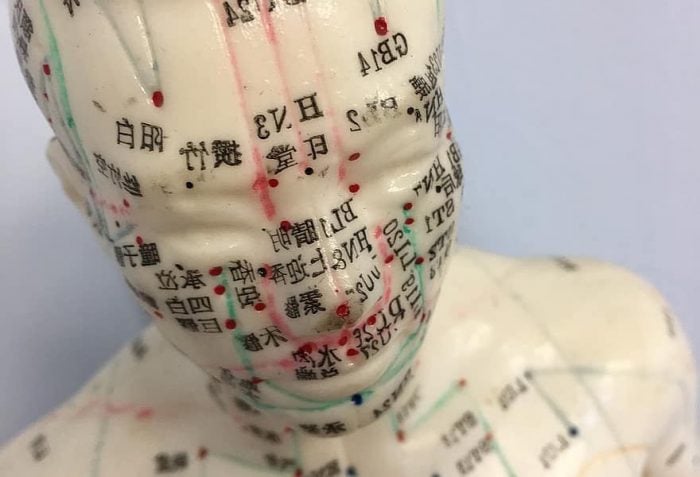Envy and jealousy have a bad name. They are seemingly toxic emotions we feel ashamed to admit.
This is why quarantine envy is rarely talked about in the current climate.
Quarantine envy is a negative state of mind specific to this pandemic. It happens when we perceive our situation as worse than others due to a lack of circumstances or things.
Just two months of sheltering in place, and we have become covetous, envious, and resigned.
You may be the essential healthcare worker who is risking your life daily, experiencing trauma after witnessing countless deaths while friends are filling their Instagram with #selfcare rituals and Zoom happy hour photos.
You might be stuck in a city alone and lonely, when others are hunkering down with their partners and families all cozied up.
You may even resent the balcony just above your tiny studio that affords your neighbor a breath of fresh air and a semblance of freedom.
As the world is turned upside down, so is our sense of identity. People have trouble accepting change, especially when it occurs almost overnight. People have lost jobs, risked their lives as essential workers, canceled weddings, moved away abruptly, or even lost a loved one during this pandemic.
We are presented now with an unprecedented situation that we absolutely have no control over. It seems unfair when we look at others who still seem to have things going perfectly well; it seems perfectly natural and be envious of their still functioning life.
And you know what? A little dose of envy can be fuel to propel one’s life—to aim to achieve more, and to want more out of life. However, obsessive and repressive envy can be self-destructive. It can lead to a myriad of other negative emotions such as anger, anxiety, resentment, low self-worth, shame, and fear.
But we are not alone. If we pay careful attention, we will soon realize suffering comes in all shapes and sizes. It is the common language in this pandemic. The fix is to recognize, process, and transform.
Mindset
Maybe there is nothing on the bright side at this moment. Maybe there is not much to be grateful for. Maybe you want to spend a brief moment recognizing the envy and the anger.
The last thing you want to do right now is to repress the negative emotion. Your body and mind are closely related. Repression only stagnates and creates chronic emotional and physiological distress. Just as physical waste needs to be excreted, so does our emotional waste. This too, needs to be processed and expelled from the body.
But do not dwell in the dark incessantly.
You do not have to feel grateful, but you can definitely choose to let that negative feeling go. Even better, turn that emotion into fuel for growth and creativity, and use this time to prepare for the life you envision.
We have to remember that the only constant in life is change—that our situation will shift and change just like everything else in the natural world. We can imagine our emotional life as peaks and valleys connected by a single line. Right now, it looks like an inverted COVID-19 graph; you are in a valley. Right now, we need to allow ourselves time to recognize that we experience envy; we need to understand the why.
When we’ve done that, we can then practice gentle acceptance for this negative feeling.
Finally, when we feel ready, we can visualize envy releasing from our body as we practice breathwork, acupressure, and active movement to release this emotion from our body, and transform that energy into something more constructive.
Acupressure
According to Traditional Chinese Medicine (TCM) theory, envy is a complex emotion that can be related to liver, spleen, and kidney meridian disharmonies, depending on how one experiences this emotion.
For example, if envy triggers anger and resentment, it drives energy upward and stagnates liver energy or results in liver fire.
If envy results in worrying and overthinking, then the spleen meridian is off balance.
On the other hand, if envy is rooted in underlying fear and the inability to let go, then the kidney meridian is involved.
Recent years of neuroscience research have shown the importance of the mind-body connection. Just like other negative emotions, envy can stimulate stress response in the body. This involves the sympathetic nervous system and triggers “fight-or-flight” responses such as spiked blood pressure, and an increased heart rate. In fact, envy activates a part of the brain that processes physical pain. So it is no surprise that prolonged and suppressed feelings of envy are frequently accompanied by physiological symptoms such as jaw tension and headaches.
Some acupressure points that can help you deal with the emotion of envy are:
Yintang (Hall of Impression, Third eye)
Pressing on this point has a calming effect and helps one to develop intuition.
DU20 (Hundred Convergence)
This is a powerful point for mental clarity, and developing spiritual consciousness.
KD27 (Shu Mansion)
Pressing on this point has sedating and calming effects and relieves anxious thoughts.
LR13 (Screen Door)
This point regulates the liver meridian and promotes the free flow of Qi in the body.
GB13 (Root Spirit)
As the name suggests, pressing on this point “grounds the spirit” and helps to quiet the mind—especially constant worrying, jealousy, envy.
I recommend applying gentle pressure to these points, either with your fingers or an acupressure tool.
All the points, except the ones on the scalp, should produce a slight tender sensation to the pressure. While stimulating these points, take long and full breaths to slow down your breathing. Deep and slow breathing is a great tool to jumpstart your vagus nerve; stimulating parasympathetic activities to benefit relaxation.
If you only have time for a one-minute fix, then simply hold down and massage the middle finger while enjoying some luxurious breaths. This opens up the pericardium meridian and dissipates negative emotions of anger and envy.
Movement
Esther Perel says it all starts in the body; a bodied-up ritual involving breathing and stretching is a great way to intervene the downward spiral of negative emotions in this pandemic.
Aerobic exercises such as running, swimming, or spinning are great ways to release that pent-up jealousy and resentment. The point is to keep moving so our body will not store that negative emotion, which will eventually create blocks manifested as physiological symptoms.
Similarly, stretching also helps to release stagnated emotions by activating various meridians. This is best performed in the form of Yin Yoga, where each pose is held for an extended 3-5 minutes, which allows Qi and blood circulation to reach the connective tissues (joints, bones, and fascia).
Often, we will feel extra tight in certain poses, those tend to be the meridians that have built-up stagnation, and are out of balance. Seated Butterfly, Saddle, Side Supine Deer, and Pigeon all work to stretch the above-mentioned meridians, hence, energetically releasing the emotion of envy.
This trying time calls for an extra dose of kindness toward oneself. Feeling envy is part of what makes us human. It is how we process this negative emotion that matters. Believe it or not, envy can just be the fuel you need to transform your life.
~


 Share on bsky
Share on bsky





Read 7 comments and reply